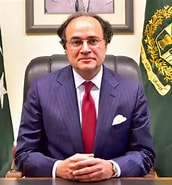ISLAMABAD As the government gets ready to implement its new $7 billion International Monetary Fund (IMF) agreement, Finance Minister Mohammad Aurangzeb stated on Friday that Pakistan will concentrate on meeting its external financing needs by corresponding with foreign governments and lenders to attract foreign investment as well as looking for loan rollovers. Earlier this month, Pakistan and the IMF came to an agreement for the 37-month loan term.
Tough measures like increasing the tax on agricultural revenues and the price of energy have raised worries about how Pakistanis in the lower and middle classes would handle growing inflation and the possibility of increased taxes.
Pakistan has long been significantly dependent on the IMF program; at times, it has been on the verge of sovereign default and has had to turn to nations like the United Arab Emirates (UAE) and in an interview, the minister of finance stated that although the government was trying to concentrate on more sustainable forms like direct investment and climate funding, foreign financing remained a significant component.
“We have requested an extension of maturities, and I believe that under the current circumstances, we can anticipate that those rollovers of loans will continue to occur,” Mr. Aurangzeb stated.
In addition to funding from the IMF, Pakistan has previously been assisted in meeting its external finance needs through loan rollovers or payments from its longstanding allies Saudi Arabia, the UAE, and China.
The IMF stated that getting “timely confirmation of necessary financing assurances from Pakistan’s development and bilateral partners” and executive board approval are prerequisites for the new Extended Fund Facility program.
According to Mr. Aurangzeb, closing the shortfall in external finance is “very manageable and very doable.” According to him, Pakistan intends to shift its focus from mostly depending on rollovers to foreign direct investment, which would include investments in the massive Reko Diq copper and gold mine located in southern Pakistan.
He said that the government was selecting projects that were “bankable and investable” for Saudi Arabia and the United Arab Emirates, who have expressed interest in investing billions of dollars in the nation.
He asserted, “That’s what will lead to sustainability.” “We will not be able to exit the ‘last’ program if we are unable to complete this within the next three years.”
Due to decades-long boom-bust cycles, Pakistan has required more than 20 IMF bailouts since 1958. As of July 11, it owed $6.28 billion, making it the fifth-largest debtor in the IMF’s database.
According to Mr. Aurangzeb, the International Finance Corporation (IFC), the World Bank’s private investment arm, expressed interest in the Reko Diq copper and gold mining project and indicated it would make a “large amount” of investment.
He stated that Islamabad will address the IMF-recommended structural changes for the electricity industry with Beijing during a forthcoming visit to China. In Pakistan, Beijing has established planned energy projects valued at more than $20 billion.
One of the nations most impacted by climate change, Pakistan, has also consented to begin discussions with the IMF this year over financing under the Fund’s Resilience and Sustainability Trust (RST) in order to get funding for climate change-related projects.
In addition to killing hundreds of people, the massive floods of 2022 destroyed crops and infrastructure to the tune of billions of dollars.
Though he did not say how much the government would want, Mr. Aurangzeb stated, “We will start the discussions around that during this calendar year, possibly at the time of the first review, which will be in October, around the annual meetings in Washington. “The PML-N administration thought that as Pakistan had successfully finished the long-term EFF in 2017, the strategy was in place to guarantee that Pakistan finished the current
The minister, who once oversaw the biggest bank in Pakistan, emphasized that the government intended to force the sale of businesses that were losing money, such as the country’s flag airline, Pakistan International Airlines.



